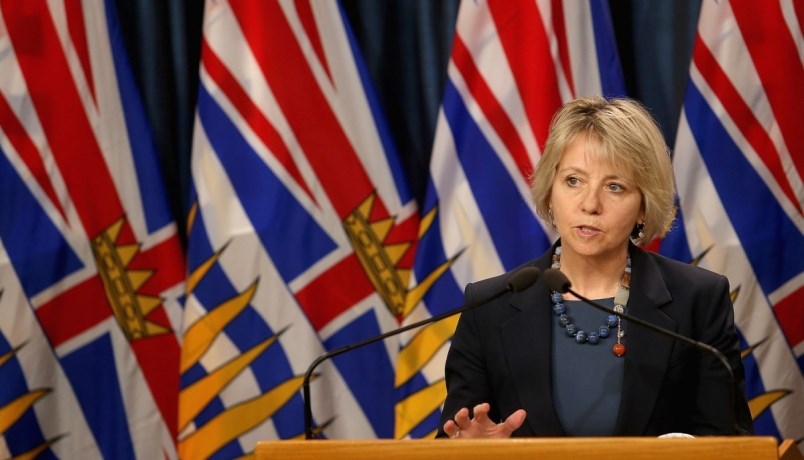Stressing the impact of loosened restrictions won't be known for the next 14-28 days, provincial health officer Dr. Bonnie Henry urged caution Thursday as British Columbians head into the long weekend while also confronting the COVID-19 pandemic.
"As we know, the incubation period for the virus is 14 days, so it will take us the next 14 to 28 days to understand the impact of the measures that we're taking, in the coming week," Henry said in a briefing.
The move into the second phase of the province's program to contain the virus spread began Thursday, when people were welcomed to expand their "bubble" of close contacts to friends and family while also being urged to keep that number down to no more than a half dozen.
And starting May 19, restaurants, hair salons and other businesses whose doors have been closed will be allowed to reopen if they have a plan in place to ensure physical distancing. A limit of 50 customers and employees will be in place.
Whether further steps that would include reopening hotels and resorts and campgrounds in June and smaller entertainment venues in July will follow will depend on what the numbers say in the days leading up, Henry said.
"I want that as a caution for people to know that we will not be moving into the next phase until we are confident that the measures we've taken so far have not resulted in a dramatic increase in transmission in the community," Henry said.
As of Thursday, the number of confirmed cases since the province began keeping count grew by one in Northern Health, putting the running total at 58.
The number of active cases stood at five with two in hospital and one of them in critical care, according to the B.C. Centre for Disease Control. No deaths from the virus have been recorded in Northern Health.
Province wide, the running count grew by 15 to 2,392 while there were 278 active cases and 1,185 recoveries. Three deaths in Fraser Health increased the total in B.C. to 135.
British Columbians are being asked to "stay local" this long weekend and to continue to practice physical distancing, frequent hand washing and staying at home for those who show symptoms of the illness.
Do's include enjoying the outdoors safely and visiting nearby provincial parks and recreation sites. B.C. Parks campgrounds will remain closed while most sites and trails will be available for day use only.
"Access to beaches, trails, most picnic areas and washroom facilities, and boat launches is permitted. However, in keeping with public health guidelines around non-essential travel, people are urged to only visit parks and recreation sites close to their home and avoid travelling to small communities," the provincial government said in a press release.
"Some parks will remain closed due to potential challenges with high numbers of anticipated visitors. If you get to your favorite park and find it busy, come back another time."
Don'ts include visiting vacation properties and pleasure boating, in part because mishaps could put rescuers at risk.
"As well, boaters should be aware that some small coastal First Nations communities have closed their villages to visitors to protect themselves from COVID-19, so boaters may not have access to fuel, supplies and other services," the province said.


